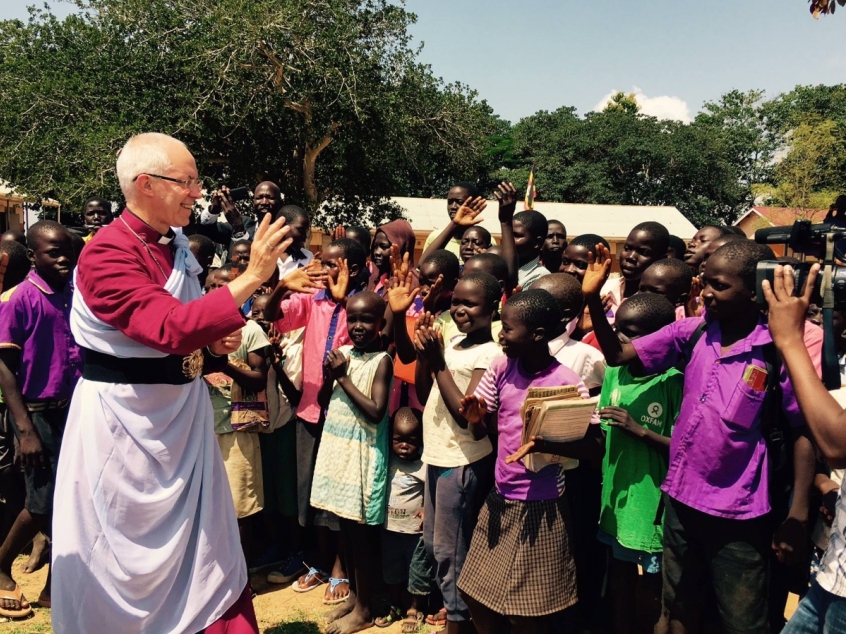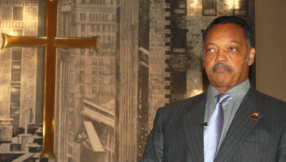The GAFCON conservative Anglican grouping, set up to resist what it perceives as a liberal drift in the Anglican Communion, is facing internal pressures over its position on female bishops following the consecration of a woman bishop in one of its constituent provinces.
A GAFCON 'Task Force on Women in the Episcopate' reported last September and concluded that 'the provinces of GAFCON should retain the historic practice of the consecration only of men as bishops until and unless a strong consensus to change emerges after prayer, consultation and continued study of Scripture among the GAFCON fellowship'.

However, the GAFCON-affiliated province of South Sudan consecrated Elizabeth Awut Ngor as assistant bishop of the Diocese of Rumbek on December 31, 2016.
GAFCON represents conservative evangelical Anglicans who are united in their opposition to homosexual practice. However, while most would also be opposed to women in pastoral leadership, there is less unanimity on this question – and it is now being faced with a split over what some believe is a core issue of biblical faithfulness.
GAFCON'S Primates Council said in response to the task force report that it, 'while recognising that there are differing views on the consecration of women to the episcopate, encourages the provinces of GAFCON to continue to study the Scriptures, to consult with one another and to pray that God would lead us to a common mind on this issue'.
The South Sudan appointment pre-dates the task force report, though a 'voluntary moratorium' on the consecration of women as bishops was agreed in 2014. However, in an indication of the polarisation of views on the issue, one of those who consecrated Awut, Archbishop Daniel Deng, told Radio Good News before his retirement in January this year, 'It was in my dream to ordain a woman as bishop in the Episcopal Church of South Sudan and Sudan before I leave.' Deng was not present when the moratorium was agreed.
However, in an apparent inconsistency, GAFCON's statement on Awut's consecration said Deng had told the Primate's Council that 'his personal decision to consecrate a female bishop was an extraordinary action taken in the midst of civil unrest in a part of his country where most of the men were engaged in armed conflict' – a statement appearing to contradict his stated enthusiasm for women bishops in general.
The GAFCON statement said the primates 'chose to not allow this anomaly to change the course followed since 2014' and that the 'voluntary moratorium' remained in place pending further discussion at the GAFCON meetings in Jerusalem in June.
In an indication of the tensions over the issue, GAFCON has also been accused of underplaying the significance of the consecration and even, in an Anglican Unscripted YouTube broadcast, of attempting to conceal it. According to Thinking Anglicans, the appointment was not made public through normal channels such as the Anglican Communion News Service and only became known when group photos taken at last month's meeting of the South Sudan House of Bishops showed one bishop in a skirt holding a handbag, as reported by Anglican Ink.
The GAFCON-affiliated Diocese of Fort Worth, Texas protested the consecration of Awut on Friday, saying, 'we struggle to understand why it is that the consecration of Ms Awut has been seemingly kept as a secret within the GAFCON community for over a year. If it is the belief of the South Sudanese that women are rightly consecrated to the episcopacy, why was this not more openly celebrated from the start?' It says: 'We find the seemingly veiled nature of the consecration for over a year, along with the accompanying questions it raises, deeply disconcerting in the Diocese of Fort Worth.'
However, writing on the Anglican Ink website in response to the YouTube broadcast, GAFCON press officer Andrew Gross denied any 'conspiracy' to hide the news. 'GAFCON knew that South Sudan's news would become public knowledge, but it was South Sudan's news to break, not ours,' he said.
'In hindsight perhaps Gafcon could have encouraged the South Sudanese Provincial office to make a statement proactively, but, because the situation in South Sudan is so messy and the pressures so huge, we waited.'
Gross appealed for patience, saying: 'We love our brothers and sisters [in South Sudan] and are praying for them. I hope that the rest of the Anglican world shows them as much grace and patience as have the GAFCON Primates.'
GAFCON confirmed to Christian Today: 'We had no motivation to keep it secret, and didn't consider keeping it a secret was ever possible or desirable.'
The tensions over the Awut's appointment indicate, if nothing else, the difficulty of getting even conservative Anglicans united by their opposition to liberalism to march in step – a difficulty that mirrors, ironically, that faced by the archbishop of Canterbury, who also has to keep a fractious coalition of independent provinces together. While the consecration of women as bishops does not arouse the same level of visceral opposition as acceptance of same-sex marriage, it is still a major sticking-point for many conservatives. GAFCON's meeting in June will be a testing time for the movement's unity.













